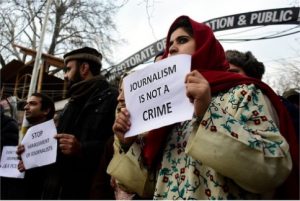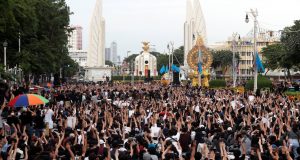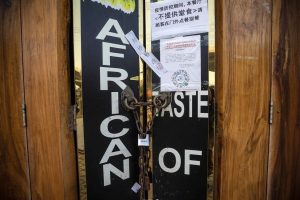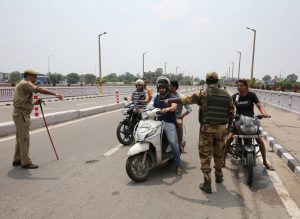By: Hannah Bennink
Impunity Watch Staff Writer
NEW DELHI, India – In the midst of massive protests led by farmers in pursuit of fair agricultural laws, the Indian Government has imposed a crackdown on media outlets providing coverage. Police have filed criminal charges against journalists and activists for covering and sharing information on the protests.

Among the arrested include editors of two prominent independent news outlets, The Wire and The Caravan, as well as Shashi Tharoor, a very prominent opposition Congress party politician who is charged with “misreporting facts” surrounding the death of the protestor. Other charges include sedition, promoting communal disharmony, and making statements prejudicial to national integration.
This is not the first time the press has targeted India despite the freedom of expression being a constitutionally guaranteed freedom. There have been 405 sedition cases filed against Indian citizens for criticizing politicians and governments in the last decade, an overwhelming majority of those arrests coming after Modi gained power in 2014. In 2020 alone, sixty-seven journalists were arrested and 200 physically attacked. Despite the Indian government’s pride in its vibrant and competitive media, the country ranked 142 on the 180-country World Press Freedom Index in 2020 according to Reporters Without Borders.
The Indian government denies that journalists are being targeted. The National Vice President, Baijayant Panda, told the BBC that “All journalists with avowed political affiliations and evident slant against the government have continued to write and speak freely in newspapers, television and online portals.” The Vice President alleges that recent arrests of journalists have been in response to “serious criminal allegations of fake news peddling in a riot-like situation, with the intent of fanning violence.”
In addition to the arresting journalists, the Indian government has shut down mobile internet services at protest sights in order to “maintain public safety”. Internet rights groups have condemned the shutdowns, asserting they were “suppressing the free flow of information related to peaceful assembly and the right to protest.” International human rights law requires India to ensure that restrictions on the internet and other forms of communication are part of a necessary and proportionate response to a specific security concern, and not to curtail the flow of information or to harm people’s ability to freely assemble and express political views. The Indian government has been known to block internet access in the past. In 2019, they shut off web access more than one hundred times, along with the longest imposed blanket internet outage in a democracy for five months in Kashmir.
Several internationally known figures have spoken out in support of the farmers and the journalists including Rhianna, Rupi Kaur, Greta Thunberg, and Meena Harris. Despite the international attention, arrests have continued, the most recent being February 13th when 22-year-old climate activist Disha Ravi for being a “key conspirator” in the “formulation and dissemination” of a protest “tool-kit” meant to provide resources to farmers.
For more information, please see:
BBC News – Disha Ravi: India activist arrest decried as ‘attack on democracy’ – 14 Feb. 2021
BBC News – Why journalists in India are under attack – 4 Feb. 2021
Columbia Journalism Review – India cracks down on journalism, again – 5 Feb. 2021
Human Rights Watch – India: Journalists Covering Farmer Protests Charged – 2 Feb. 2021
The Guardian – Indian journalists face criminal charges over police shooting reports – 1 Feb. 2021
The NY Times Modi’s Response to Farmer Protests in India Stirs Fear of a Pattern – 8 Feb. 2021



